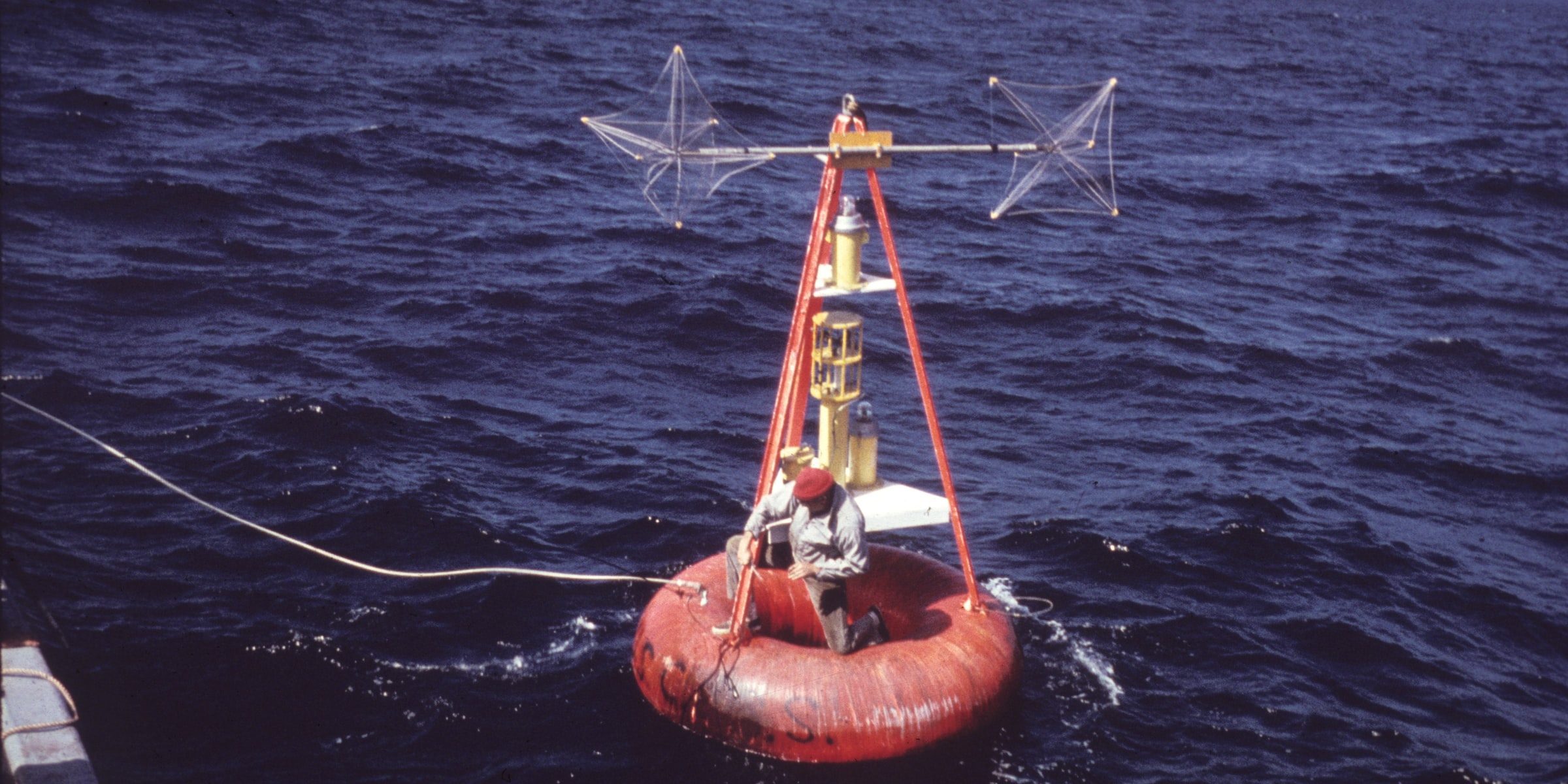
In response to calls from the Second World Climate Conference (Geneva, 1990), the Intergovernmetal Oceanographic Commission (IOC) created the Global Ocean Observing System (GOOS) in March 1991. The creation was also a result of the desire of many nations to gather the information required to improve forecasts of climate change, the management of marine resources, mitigation of the effects of natural disasters, and the use and protection of the coastal zone and coastal ocean. The call to create and develop a GOOS was reinforced in 1992 at the United Nations Conference on Environment and Development in Rio de Janeiro.
The systems for ocean measurement under the aegis of GOOS were initially designed by the Ocean Observing System Development Panel, refined in the 1998 Action Plan for GOOS/GCOS, and further refined in the GCOS Implementation Plan. The OceanObs’09 conference (Venice, Italy) involved more than 600 participants from 36 countries who defined a vision for societally beneficial ocean observations to be sustained over the next decade. Participants called for the development of a framework to plan and move forward an enhanced global observing system with existing and new physical, biogeochemical, and biological observations. This led to a transformation of the structures and governance of GOOS in 2012.
GOOS is directed at two main themes. One concerns largely the open ocean and is designed to provide information in support of ocean services and the forecasting of weather and climate change. The other concerns largely the coastal seas and is designed to provide information on the health of coastal ecosystems and their sustainable development, on contamination and pollution and the quality of water, on conditions pertaining to offshore commercial and recreational activities, and on marine hazards – especially storms and storm surges likely to affect life and property. The climate module of GOOS is the ocean component of the Global Climate Observing System, GCOS, making these two systems inseparable.
The co-sponsors of the GOOS Steering Committee, which is responsible for all the scientific and technical aspects of GOOS design and in the undertaking of appropriate activities to support the design process, are the IOC of UNESCO, WMO, UNEP and the ISC. In relation to the ISC, the Scientific Committee on Oceanic Research (SCOR) of ICSU, the ISC’s predecessor organization, being the principal ISC body responsible for matters relating to ocean research, and, at the same time, the principal Scientific Advisory Body to the IOC, is involved in the scientifically based design and planning for GOOS.
The Executive Heads of the co-sponsors jointly appoint the Chairman and members of the GOOS Steering Committee, arrange for the expansion of the GOOS Secretariat, arrange for the necessary financial support for the GOOS Steering Committee and its secretariat staff, and harmonize and coordinate GOOS activities. Each of the sponsoring organizations also appoints one representative member to the GOOS Steering Committee. The Steering Committee has the responsibility of submitting reports to the sponsoring organizations at appropriate times.
In other words, the ISC contributes to the development and approves strategy and activity plans, as well as associated budgets. The ISC also establishes and appoints international steering/advisory committees, with the possibility for ISC members to submit nominations as part of the process. The ISC is also in charge of reviewing GOOS, defining review terms of reference, appointing review panel members, funding ISC representatives.